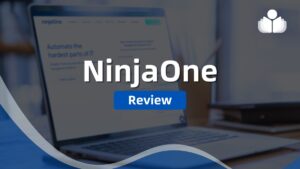In any job search, choosing the right words to describe yourself is crucial for making a strong impression in interviews, resumes, and personal branding efforts. These words highlight your crucial personality traits and reflect your strengths and professional qualities, allowing you to showcase your suitability for the job effectively.
By handpicking descriptive words that align with the job requirements, you can convey confidence, build a strong personal brand, and differentiate yourself from other candidates. The right words help communicate your value to employers, showing how you fit into their team and culture.
Personality Traits
Personality traits can powerfully convey emotional intelligence, interpersonal skills, and how one approaches life. Choosing the right words allows you to express who you are and how you interact with others concisely yet meaningfully.
These traits reflect your character, ambition, and outlook. They can highlight your personal strengths in both professional and personal settings.
Positively Personal Traits
| Trait | Description |
| Confident | Having self-assurance in your abilities and decisions. |
| Ambitious | Driven to achieve personal and professional goals. |
| Friendly | Warm, approachable, and easy to talk to. |
| Empathetic | Understanding and sensitive to others’ emotions. |
| Optimistic | Having a positive outlook on life and its challenges. |
Social Skills
Social skills describe how well you interact and communicate with others. These traits are essential for building relationships, networking, and working within teams.
| Trait | Description |
| Charismatic | Naturally drawing others in with your personality. |
| Outgoing | Socially confident and engaging in interactions. |
| Approachable | Easily accessible and open to conversations. |
| Diplomatic | Skilled in managing delicate matters and relationships. |
| Cooperative | Working well with others to achieve common goals. |
Innovative and Creative Traits
These traits highlight your ability to think outside the box, solve problems, and offer creative solutions. They are great for showcasing adaptability and visionary thinking.
| Trait | Description |
| Imaginative | Able to create and think of new ideas and concepts. |
| Visionary | Having a clear sense of direction and future possibilities. |
| Artistic | Skilled in creative endeavors such as design or writing. |
| Inventive | Capable of finding novel solutions to problems. |
| Intuitive | Making decisions based on strong gut feelings or instincts. |
Professional Strengths
Professional strengths reflect your work ethic, leadership abilities, and problem-solving skills. Using the right words helps convey competence, reliability, and how well you perform in professional settings.
Leadership and Management
These traits show your ability to guide teams, decide, and inspire others to achieve shared goals.
| Trait | Description |
| Decisive | Able to make quick, effective decisions even under pressure. |
| Assertive | Communicating confidently and standing up for your ideas and decisions. |
| Motivational | Inspiring and encouraging others to perform their best and reach their potential. |
| Influential | Impacting others’ opinions, behaviors, or decisions positively. |
| Strategic | Planning effectively to achieve long-term goals with foresight and organization. |
Work Ethic and Dedication
These traits highlight your commitment, reliability, and determination to succeed in the workplace.
| Trait | Description |
| Diligent | Hardworking and careful in completing tasks with precision. |
| Perseverant | Demonstrating persistence and determination in overcoming challenges. |
| Reliable | Trustworthy and dependable, consistently delivering high-quality work. |
| Meticulous | Paying attention to details and ensuring accuracy in all tasks. |
| Self-motivated | Proactively taking initiative and driving your own progress without supervision. |
Problem-Solving Abilities
These traits showcase your ability to think critically, find solutions, and overcome obstacles efficiently.
| Trait | Description |
| Analytical | Able to break down complex problems and analyze data to find logical solutions. |
| Resourceful | Using available resources creatively to overcome challenges. |
| Innovative | Coming up with new and effective ideas to solve problems. |
| Solution-oriented | Focused on finding practical solutions rather than dwelling on problems. |
| Logical | Approaching situations with clear, reasoned thinking and making sound decisions. |
Words to Never Describe Yourself As
Here’s a table that categorizes words not to use to describe yourself, explaining why they can be problematic in professional, academic, or personal settings:
| Word | Reason Not to Use |
| Perfectionist | Can imply being overly critical or unable to complete tasks efficiently due to high, unrealistic standards. |
| Lazy | Directly suggests lack of motivation or drive, which is undesirable in most professional and personal contexts. |
| Arrogant | Implies an overinflated ego and a lack of humility, which can be off-putting to employers and colleagues. |
| Impatient | Signals frustration with others or situations easily, which could be seen as a lack of emotional control. |
| Stubborn | Suggests difficulty in being flexible or open to feedback, a negative in collaborative environments. |
| Disorganized | Highlights poor planning or time management skills, which can be a red flag for employers looking for dependability. |
| Indecisive | Conveys a lack of confidence or difficulty in making decisions, which could affect leadership potential. |
| Boring | Implies a lack of creativity, personality, or enthusiasm, which can make you seem disengaged or unmotivated. |
| Unreliable | Directly communicates that you can’t be trusted to complete tasks or follow through on commitments. |
| Perfectionist | Although some people think this shows high standards, it often suggests inefficiency and an inability to delegate. |
| Negative | Shows a pessimistic mindset, which can bring down team morale or indicate difficulty in handling challenges. |
| Sarcastic | Implies a potential for inappropriate communication styles that could offend or alienate others in the workplace. |
| Selfish | Suggests an inability to work well in teams or put the needs of the group/company ahead of personal interests. |
| Shy | May be interpreted as lacking confidence or the ability to interact well in professional or social situations. |
| Aggressive | Can imply confrontation or lack of emotional intelligence in managing relationships or conflicts. |
| Judgmental | Suggests a lack of openness or empathy, which can be harmful in team dynamics and client relations. |
| Moody | Indicates instability or unpredictability in behavior, which can make others uncomfortable working with you. |
| Perfectionist | This can be a double-edged sword, as it can imply difficulty meeting deadlines due to over-obsessing on minor details. |
| Unmotivated | Directly shows a lack of drive or enthusiasm, which is unattractive to employers or collaborators. |
| Distracted | Suggests an inability to focus or complete tasks efficiently, which could be problematic in time-sensitive roles. |
| Overly Sensitive | May indicate difficulty in handling criticism or feedback constructively. |
| Talkative | Can imply a tendency to dominate conversations or lack listening skills, which is undesirable in teamwork. |
| Overconfident | Indicates a lack of humility and a risk of underestimating tasks or colleagues, which could lead to poor performance. |
| Critical | Suggests a tendency to focus on negatives rather than solutions, which can affect team morale and productivity. |
| Fearful | Conveys a lack of courage or initiative could be detrimental in leadership or decision-making roles. |
| Lazy | Directly suggests a lack of effort, drive, and motivation, which is unattractive in any setting. |
Academic & Learning Traits
| Subcategory | Description | Examples |
| Intellectual Curiosity | Demonstrates a strong desire to learn, explore, and understand new topics. | Curious, Inquisitive, Eager to learn, Studious, Scholarly |
| Hardworking & Focused | Displays determination and concentration toward achieving academic goals. | Persistent, Determined, Focused, Goal-oriented, Disciplined |
| Innovative & Critical Thinker | Applies critical thinking and creativity to solve problems or approach ideas in new ways. | Critical thinker, Innovative, Analytical, Thoughtful, Insightful |
Describing Yourself in Interviews & Resumes
When preparing for an interview or crafting a resume, it’s essential to describe yourself in a way that resonates with the job description and highlights your strengths. Strategic use of impactful words can differentiate you from other candidates, but it’s not enough to just list them. You need to show how these traits have contributed to your accomplishments and how they will bring value to the organization.
How to Strategically Use These Words
Tailor Your Language to the Job Description
Align your words with the qualities and skills the employer is seeking. If the role requires problem-solving, highlight traits like “critical thinker” and “analytical.” If it involves creativity and innovation, focus on words like “innovative” and “thoughtful.”
Use Action-Oriented Words
Combine descriptive traits with action verbs to create dynamic and results-oriented statements. Action-oriented words like “led,” “developed,” “improved,” or “designed” bring energy and impact to your resume or interview answers.
Provide Specific Examples
Back up your self-description with specific examples of how you’ve shown these qualities in past experiences. Quantify your achievements to show real impact.
Demonstrate Continuous Growth
Emphasize traits that show you’re always learning and improving, like “thoughtful” or “insightful.” Explain how you use these qualities to adapt to new challenges in interviews.
Examples of Weaving These Words into Sentences
Some examples of weaving these words into sentences:
- Led a cross-functional team to optimize workflow processes, using critical thinking and data analysis to reduce project turnaround time by 20%.”
- In my previous role, I consistently employed critical thinking to troubleshoot operation bottlenecks. By analyzing data and exploring alternative solutions, I could implement improvements that resulted in a 15% increase in efficiency.
- It has developed an innovative content marketing strategy that increased website traffic by 40% over six months.
- Delivered insightful business recommendations based on in-depth analysis of user behavior, which led to a 10% increase in conversion rates.
- I approach challenges analytically. For example, I led a project where I analyzed vast amounts of market data to guide strategic decisions, directly contributing to a 30% boost in product sales.
Conclusion
Selecting the right words to describe yourself is essential in shaping how others perceive you, whether in professional, academic, or social settings. Using descriptive words thoughtfully can highlight your strengths and convey the qualities you want others to see.
Choose words that reflect your authentic self and align with your personal or career goals. Practicing these descriptions in everyday conversations and interactions can boost your confidence and refine your self-presentation skills. The right words can help you make a lasting, positive impression.
 Sections of this topic
Sections of this topic
















